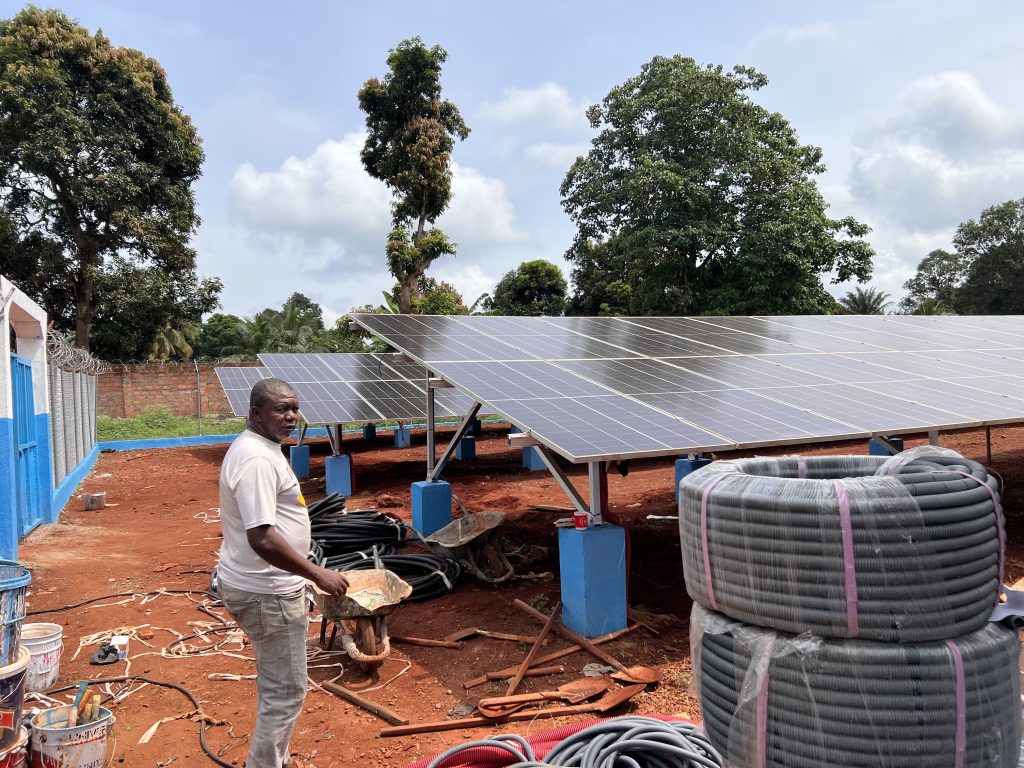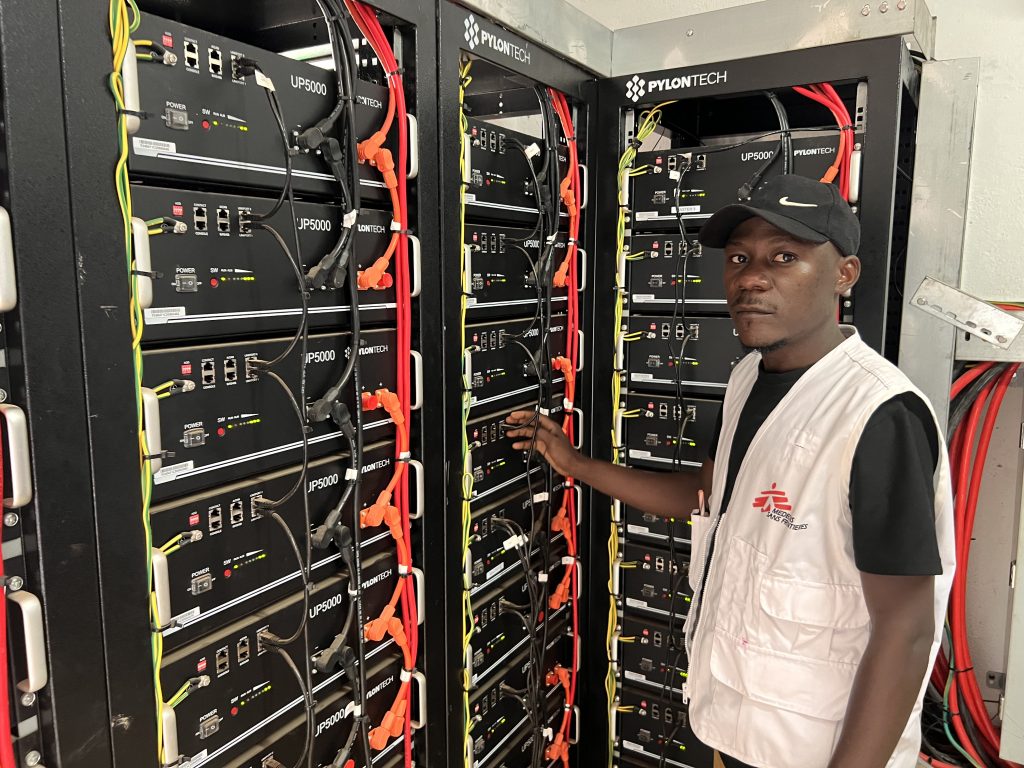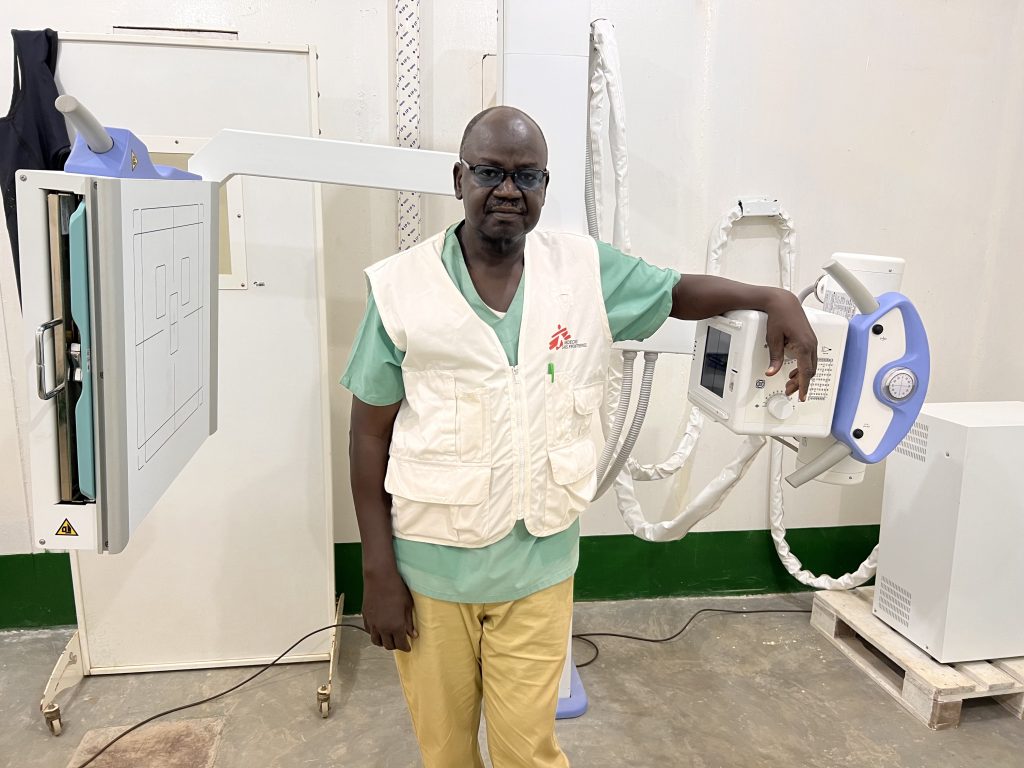In the Central African Republic (CAR), access to electricity remains a major challenge, hindering the development and quality of essential services, particularly in healthcare. According to the World Bank, only one in seven people in CAR has access to electricity, with stark disparities between the capital Bangui (35 per cent) and rural areas (0.4 per cent). In this context, medical facilities—already weakened by years of conflict and underfunding—struggle to provide adequate care.
Faced with this reality, Médecins Sans Frontières (MSF) has, for several years, undertaken a wide-ranging programme to install hybrid solar panel systems in several health facilities across the country where the organisation operates. The goal: to ensure sustainable energy autonomy, reduce dependence on costly and polluting diesel, and improve medical care—including in the most remote areas.
Meeting a vital need
Before the introduction of these systems, most hospitals supported by MSF relied entirely on diesel generators, while health centres simply had no electricity at all. In Batangafo, for instance, the hospital consumed over 3,000 litres of fuel per month, while in Bossangoa, consumption reached 5,500 litres monthly, at an average cost of 2,000 CFA francs (around €3) per litre.
Today, the hybrid solar installations provide hospitals with stable, clean and autonomous energy, while drastically reducing fuel and generator maintenance costs. This transition also limits dependence on diesel, whose transport to remote areas remains complex and expensive. Beyond the economic and logistical benefits, it has brought about a significant reduction in carbon footprint, contributing to environmental protection and the long-term sustainability of medical activities.

Reliable energy for continuous safe care
The change is equally striking at Bossangoa hospital. “Today, we only use about 1,500 litres per month,” explains Fuh Hanson, MSF energy specialist. This shift represents an annual saving of around 48,000 litres of diesel and a reduction of more than 120 tonnes of CO₂ emissions.
Further south, in Bangassou, the installation of solar panels already provides nearly half of the regional hospital’s energy needs, and an ongoing extension will soon increase this to 80 per cent. Several MSF-supported health facilities in the region have also been equipped, allowing them to maintain the cold chain for vaccines and provide emergency night services—such as childbirth and surgical interventions—under reliable conditions.

In the capital, at the Community University Hospital Centre (CHUC) of Bangui, MSF has installed a 120-kWh solar system dedicated to the gynaecology and internal medicine departments. This installation ensures a permanent and reliable power supply, essential for the smooth running of medical activities in these high-demand services.
Human, economic and environmental impact
The introduction of these sustainable energy systems goes far beyond a technical improvement. It transforms the daily lives of medical teams and patients. Solar energy stabilises the operation of operating theatres, laboratories, and cold rooms. It also enhances patient safety by ensuring nighttime lighting and the continuous operation of vital medical equipment.
Economically, the reduction in fuel consumption and generator maintenance costs allows financial resources to be redirected towards medical care. At the same time, the avoided CO₂ emissions contribute to MSF’s global climate objectives.

A sustainable humanitarian approach
MSF has set the goal of reducing our global carbon emissions by 50 per cent by 2030 compared to 2019 levels. The deployment of hybrid solar systems in CAR is fully in line with this ambition. These projects show it is possible to combine humanitarian action with environmental responsibility and operational efficiency.
In a country where humanitarian needs remain immense, solar energy represents far more than a technical solution: it is a driver of autonomy and resilience for health facilities and a source of hope for local communities.
Through these initiatives, MSF is working with local authorities to not only improving long-term access to healthcare but to also help protect the planet. By investing in clean energy solutions, the organisation is working on a path towards greener, more responsible, and more resilient humanitarian action — in the service of health and life.
-
Related:
- Central African Republic












